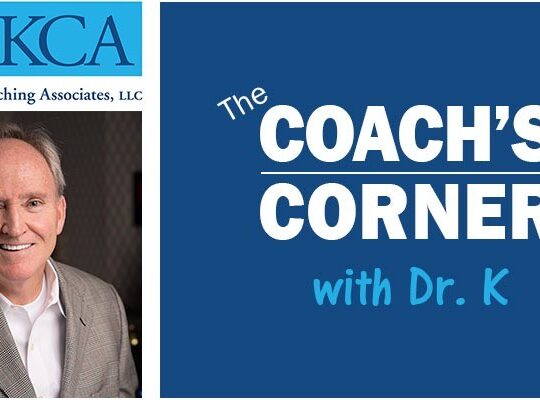“Denial helps us to pace our feelings of grief. There is a grace in denial. It is nature’s way of letting in only as much as we can handle.”
Elizabeth Kubler-Ross
The U.S. labor market continues to defy expectations as job growth has remained quite strong with a national unemployment rate of 3.7% that continues to hover close to 50-year lows over the past two years. Even with that strength, layoffs have accelerated in recent weeks across the technology and media landscape with announcements from Alphabet, eBay, TikTok, the Los Angeles Times, and Snap to name just a few and several companies outside these sectors like Citi, UPS, Macy’s, and Levi’s have also announced cuts.
Layoffs or what are commonly referred to as a Reduction in Force (RIF) will always be a major component of how our economy adapts to the continuing impact that technology, innovation, and the widespread adoption of Artificial Intelligence (AI) will have on the structure of the workforce. As a result, many of us are likely to experience job loss at some point during our career. As a bereavement minister trained to help people navigate that challenging journey of losing a loved one, I also witness in my coaching practice the grief that many of my clients experience in job loss, and it is not something that can easily be glossed over. To illustrate that point, a recent study by Gallup reported that 55 percent of American workers and 70 percent of college graduates derive their self-identity from their job. And those same stages of grief that often accompany the loss of a loved – i.e., denial, anger, bargaining, depression, acceptance, and finding meaning – can also apply during job loss and especially our self identity.
Denial Is a Natural Response to Protect Ourselves
Denial of job loss is in many ways a natural response that protects us from feeling the pain that accompanies such a difficult moment in our lives and a self-identity that now no longer seems valid. Denial occurs because the loss itself doesn’t seem real yet and our brain acts as a defense mechanism to protect that identity, to help us from feeling too many emotions all at once, and to give us some needed time to acclimate to our new reality. When I was let go of my position as the US Director of Equity Research for a major Wall Street firm several years ago, I felt as if my entire identity as a person had been taken away from me after 20 years of carefully cultivating that identity. After all, I had been among the most senior executives of the firm and a Managing Director responsible for a department of 400 professionals. I had joined the firm years earlier as a former Managing Partner of a highly regarded competitor where I had consistently ranked as one of Wall Street’s top automotive analysts over a 10-year period. I now found myself at the age of 48 without the job I loved more than any other I had experienced to date. What would I say to my wife, to my family members, and to my friends?
Denial in those early months of transition was hearing myself repeatedly say “I can’t believe this has happened to me” or that other voice inside that kept whispering in my ear “Maybe I’ll wake up tomorrow morning and realize this is just a really bad dream”. Denial could also be seen in the way I would often hide in my home office rather than venture into town where I knew the risk was high that I might run into someone I knew and would then have to retell my story of having been let go. After a while in order to protect myself, I would often snap back to people when they asked how I was doing that “I’m fine” and they need not worry about me when in reality I was in total denial of how I was really feeling and didn’t want to be around anyone.
In the denial stage of job loss, we can often feel shocked, emotionally numb, confused, disoriented, and easily distracted. We temporarily shut down and are unable to process our emotions even though at some point in grieving the loss such feelings will need to be unleashed to heal. We may sleep more than usual, procrastinate in dealing with our loss and its consequences, engage in mindless behaviors to escape having to feel anything, or try to stay busy all the time so we can avoid thinking about the loss. We may also try maintaining the lifestyle we had before the job loss even though we likely do not have the financial means to sustain that lifestyle. Moreover, many of us in denial tend to avoid interactions with family members and friends due to pride, embarrassment, and having to continually repeat the story of our job loss.
Strategies to Help Address Denial in Job Loss
To help my clients address the denial they may be experiencing in their job loss, I will often ask them several important questions during our initial meeting to help them process what has happened and try to tap into how they are feeling. For example:
- What are the specific things that you are most afraid of? Is it the loss of your income, your sense of stability and security, the impact this may have on your career plan and trajectory, and/or the loss of your status or rank in the community? I then encourage them to make a list of all the losses that they are experiencing which can enhance their overall awareness of how they can best move forward.
- What are some of the ways that can help you feel more secure about your future? Are there any big decisions looming that need to be reassessed? Can certain things be postponed for a period until you have had a chance to fully process your feelings and map out a strategy of how to move through this transitionary period?
- Could you make a list of some of the things you didn’t like about the job? Was it the people, the culture, the responsibilities and structure of the role, or the leadership of the company? Sometimes, the answers can help put the job loss in better perspective and help one regain a sense of control.
- What are some specific things you can do for your own self-care in body, mind, and spirit? Could it be exercise, going for a run or walk, meditation, reading, journaling, or asking a close friend or family member for support?
- When they feel ready, I’ll ask them to write how they might respond to the following prompt — “I used to be a __________. Now that I have lost my job as a ___________, I am ___________. This makes me feel ____________“. I encourage them to keep writing their response as long as it can help them tap how they really are feeling about the job loss.
These questions above can often open the pathway to a deeper conversation as to why the job loss happened and help to unleash such strong emotions like anger, guilt, regret, and deep sadness that must be internally processed for the healing journey to begin.
So how about you? Have you ever experienced denial in a job loss? If so, what was it like for you and what specifically helped you move through the denial stage in your journey to the next job?
Wishing my clients, colleagues, fellow coaches, and friends the gift of God’s abundant blessings, Dr. K





